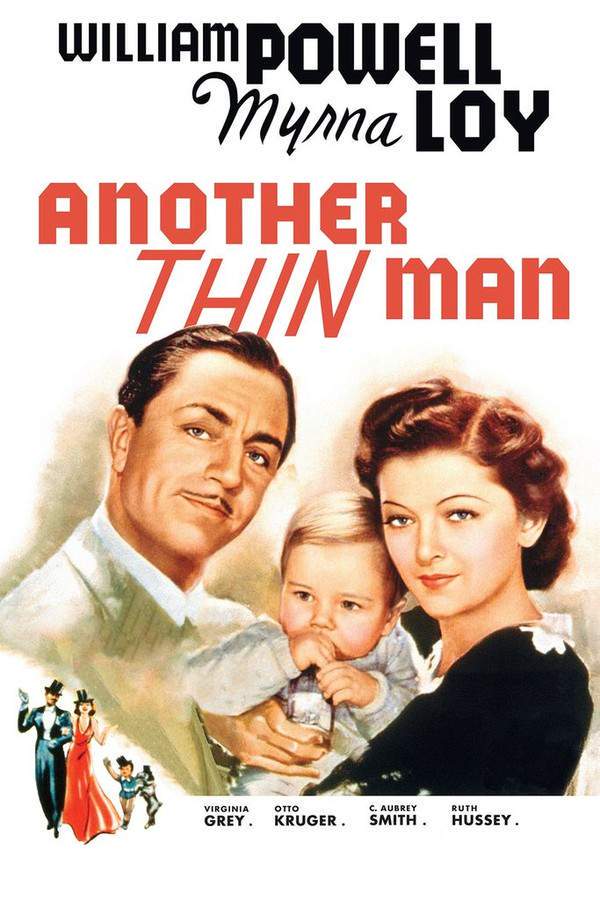
A Successful Calamity
Year: 1932
Runtime: 72 mins
Language: English
Director: John G. Adolfi
Elderly millionaire Henry Wilton, burdened by his selfish young second wife Emmy “Sweetie” and his spoiled adult children Peggy and Eddie, pretends to have gone broke to test their character. Peggy abandons fortune‑hunter George for true love with polo coach Larry, while Eddie lands a demanding job and excels. Sweetie, however, deserts him, leaving Henry to see who truly cares.
Warning: spoilers below!
Haven’t seen A Successful Calamity yet? This summary contains major spoilers. Bookmark the page, watch the movie, and come back for the full breakdown. If you're ready, scroll on and relive the story!
A Successful Calamity (1932) – Full Plot Summary & Ending Explained
Read the complete plot breakdown of A Successful Calamity (1932), including all key story events, major twists, and the ending explained in detail. Discover what really happened—and what it all means.
Henry Wilton, George Arliss, a shrewd and successful financier, returns to America after a year abroad in Europe where he helped arrange war debt repayments. He eagerly anticipates a warm reunion with his family — his much-younger second wife Emmy, Mary Astor; his daughter Peggy, Evalyn Knapp; and his son Eddie, William Janney. Yet the moment the train pulls in, the only welcome he receives is from Connors, the steady, loyal butler who informs him that he’s home a day earlier than planned. It’s a jarring start to what should be a joyful homecoming, and Henry senses something is off even before he steps into the house.
At home, Henry discovers a house transformed in his absence. Emmy, now a social butterfly, has redecorated the master chamber in an airy Art Nouveau style and has even removed Henry’s favorite chair, which Connors has consigned to storage. The mood of the house is one of gleaming surface and constant socializing, a far cry from the quiet, predictable routines Henry once took for granted. Guests fill the rooms for a music recital given by the enigmatic composer Pietro Rafaelo, a detail that reveals Emmy’s taste for culture and spectacle. The atmosphere is further complicated by the arrival of George Struthers, Peggy’s ostensibly charming fiancé, a man with a taste for wealth and a plan to marry for money. Peggy’s ambitions and impulses begin to diverge from Henry’s expectations, and the tension between financial prudence and social ambition becomes a running thread in the family’s chaotic orbit. Fortunio Bonanova as Rafaelo and the other performers set a backdrop of elegance that underscores the gulf between appearances and real affection in the Wilton clan.
In the midst of this whirlwind, Henry also faces a tense business moment. He approaches his rival Partington, David Torrence, seeking to buy a stock at a price they had previously agreed upon. Partington refuses to honor the prior agreement, arguing that the deal isn’t in writing, and Henry realizes that the market is not the only battlefield here — personal pride and perceived slights can be just as damaging as financial losses. The sting of this setback catalyzes Henry’s decision to test his family in a very personal way: he feigns ruin. He tells Emmy, Peggy, and Eddie that he has fallen on hard times, and the Wiltons, accustomed to wealth and exclusivity, react with a sudden, almost instinctive, loyalty to their patriarch. The family gathers to stay in and eat at home, a drastic departure from their usual packed social calendar, while Connors and the staff scramble to round up enough food for a frugal dinner.
As the ruse unfolds, Emmy contemplates her own life choices and life of luxury. Peggy, torn between the joy of love and the pressure of societal expectations, gives up her engagement to Randolph Scott as Larry Rivers, the man she genuinely loves, while Eddie, inspired by the possibility of independence, decides to pursue a job as a pilot. The family’s dynamic shifts as each member chooses a path that prioritizes connection over status, and the Wiltons begin to find value in simpler, shared moments rather than in appearances. It’s a turning point when Partington, hearing that Henry is ruined, believes the stock will quickly lose value and seeks to offload it, a move that inadvertently creates an opportunity for Henry to strike back.
Henry orchestrates a clever buy-through via a third party, securing Partington’s stock at a price lower than the original agreement, a move that reveals the cunning mind behind the façade of ruin. The tension peaks as the family members navigate jealousy, ambition, and a budding sense of what truly matters. The moment of triumph, however, is tempered by a personal revelation: Emmy leaves for a walk with Rafaelo and ends up taking a car ride that leads to a different kind of realization about their relationship. When she returns, she shares a quiet, powerful truth — she had gone out to pawn her jewelry to support him, and she confesses that she was happiest when they were poor enough not to be consumed by endless outings, able instead to be together as a family.
In the end, the Wiltons confront the paradox of wealth and happiness. The financial scare proves to be a catalyst for genuine connection, not a test of how much money they possess, but of how much they value one another. Emmy’s gesture of pawning her jewelry underscores a shift in priorities, and Henry’s realization that the family’s true wealth lies in time spent together closes the arc with a soft, hopeful optimism. The home, once a theatre of extravagance and social performance, settles into something warmer and more intimate, where love, loyalty, and honest effort replace showy wealth as the foundation of life.
-
Henry Wilton, George Arliss, is entangled in a plan that tests the bonds of his family and the edges of his own pride, and the film follows his journey from confident financier to wary observer of what truly sustains a family.
-
Emmy ‘Sweetie’ Wilton, Mary Astor, navigates a world of glittering social events and personal longing, wrestling with the pull between style and substance.
-
Peggy Wilton, Evalyn Knapp, torn between duty, love, and ambition, steps forward when the family needs her most.
-
Eddie Wilton, William Janney, seeks independence and purpose as he steps into a pilot’s world.
-
George Struthers, Hardie Albright, a wealthy suitor whose interest in Peggy reflects the era’s preoccupations with money and status.
-
Larry Rivers, Randolph Scott, the man Peggy loves, challenging the boundaries of social expectation.
-
Partington, David Torrence, the broker whose actions in the financial world mirror the shifting loyalties within the Wilton clan.
-
Pietro Rafaelo, Fortunio Bonanova, the composer whose recital frames the social milieu surrounding the Wiltons, and who inadvertently intersects with the family’s upheaval.
Last Updated: October 05, 2025 at 12:30
Explore Movie Threads
Discover curated groups of movies connected by mood, themes, and story style. Browse collections built around emotion, atmosphere, and narrative focus to easily find films that match what you feel like watching right now.
Movies about loyalty tests like in A Successful Calamity
Stories where a clever deception reveals the true character of loved ones.Explore movies like A Successful Calamity, featuring charming stories where characters create a clever ruse to test the people they care about. These films share a witty, optimistic tone and focus on family dynamics, deception, and the discovery of true love over materialism.
Narrative Summary
The narrative pattern typically involves a protagonist feeling unappreciated or suspicious, who then orchestrates a scenario (like faking poverty or a downfall) to observe the reactions of those around them. The plot follows the fallout of this test, often resolving with the reaffirmation of genuine bonds and the redemption of misguided characters.
Why These Movies?
These films are grouped together because they share a specific plot device—the loving test—combined with a light, witty tone and a steady, character-driven pace. They explore similar themes of family, wealth, and authenticity, resulting in a cozy, optimistic viewing experience.
Genteel comedies of manners similar to A Successful Calamity
Witty, character-driven stories exploring social dynamics with a steady, cozy pace.If you liked the witty social observations and genteel humor of A Successful Calamity, you'll enjoy these similar comedies and dramas. They feature steady pacing, light emotional weight, and a focus on character flaws and social ambition within a specific, often nostalgic, world.
Narrative Summary
Stories in this thread unfold at a steady pace, focusing on the interactions within a closed social circle—often a wealthy or upper-class family. Conflict is driven by clashing personalities, social ambition, or mild deceptions, resolved through conversation and self-realization rather than dramatic action, leading to a harmonious conclusion.
Why These Movies?
These movies share a distinctive vibe defined by their light tone, steady pacing, and focus on witty dialogue and social commentary. They offer a similar feel of cozy, intelligent entertainment that is more observational than highly dramatic.
Unlock the Full Story of A Successful Calamity
Don't stop at just watching — explore A Successful Calamity in full detail. From the complete plot summary and scene-by-scene timeline to character breakdowns, thematic analysis, and a deep dive into the ending — every page helps you truly understand what A Successful Calamity is all about. Plus, discover what's next after the movie.
A Successful Calamity Timeline
Track the full timeline of A Successful Calamity with every major event arranged chronologically. Perfect for decoding non-linear storytelling, flashbacks, or parallel narratives with a clear scene-by-scene breakdown.

Characters, Settings & Themes in A Successful Calamity
Discover the characters, locations, and core themes that shape A Successful Calamity. Get insights into symbolic elements, setting significance, and deeper narrative meaning — ideal for thematic analysis and movie breakdowns.

A Successful Calamity Spoiler-Free Summary
Get a quick, spoiler-free overview of A Successful Calamity that covers the main plot points and key details without revealing any major twists or spoilers. Perfect for those who want to know what to expect before diving in.

More About A Successful Calamity
Visit What's After the Movie to explore more about A Successful Calamity: box office results, cast and crew info, production details, post-credit scenes, and external links — all in one place for movie fans and researchers.

Similar Movies to A Successful Calamity
Discover movies like A Successful Calamity that share similar genres, themes, and storytelling elements. Whether you’re drawn to the atmosphere, character arcs, or plot structure, these curated recommendations will help you explore more films you’ll love.
Explore More About Movie A Successful Calamity
A Successful Calamity (1932) Scene-by-Scene Movie Timeline
A Successful Calamity (1932) Movie Characters, Themes & Settings
A Successful Calamity (1932) Spoiler-Free Summary & Key Flow
Movies Like A Successful Calamity – Similar Titles You’ll Enjoy
The American Success Company (1980) Detailed Story Recap
Bedtime Story (1941) Full Movie Breakdown
The Idle Rich (1929) Detailed Story Recap
Our Betters (1933) Spoiler-Packed Plot Recap
Lucky Partners (1940) Detailed Story Recap
Personal Property (1937) Plot Summary & Ending Explained
That Wonderful Urge (1948) Complete Plot Breakdown
Snowed Under (1936) Ending Explained & Film Insights
Live, Love and Learn (1937) Story Summary & Characters
You Can’t Have Everything (1937) Ending Explained & Film Insights
Design for Scandal (1941) Complete Plot Breakdown
How to Marry a Millionaire (1953) Story Summary & Characters
Easy to Love (1934) Spoiler-Packed Plot Recap
Love, Honor and Behave (1938) Story Summary & Characters
Easy Living (1937) Full Summary & Key Details











































